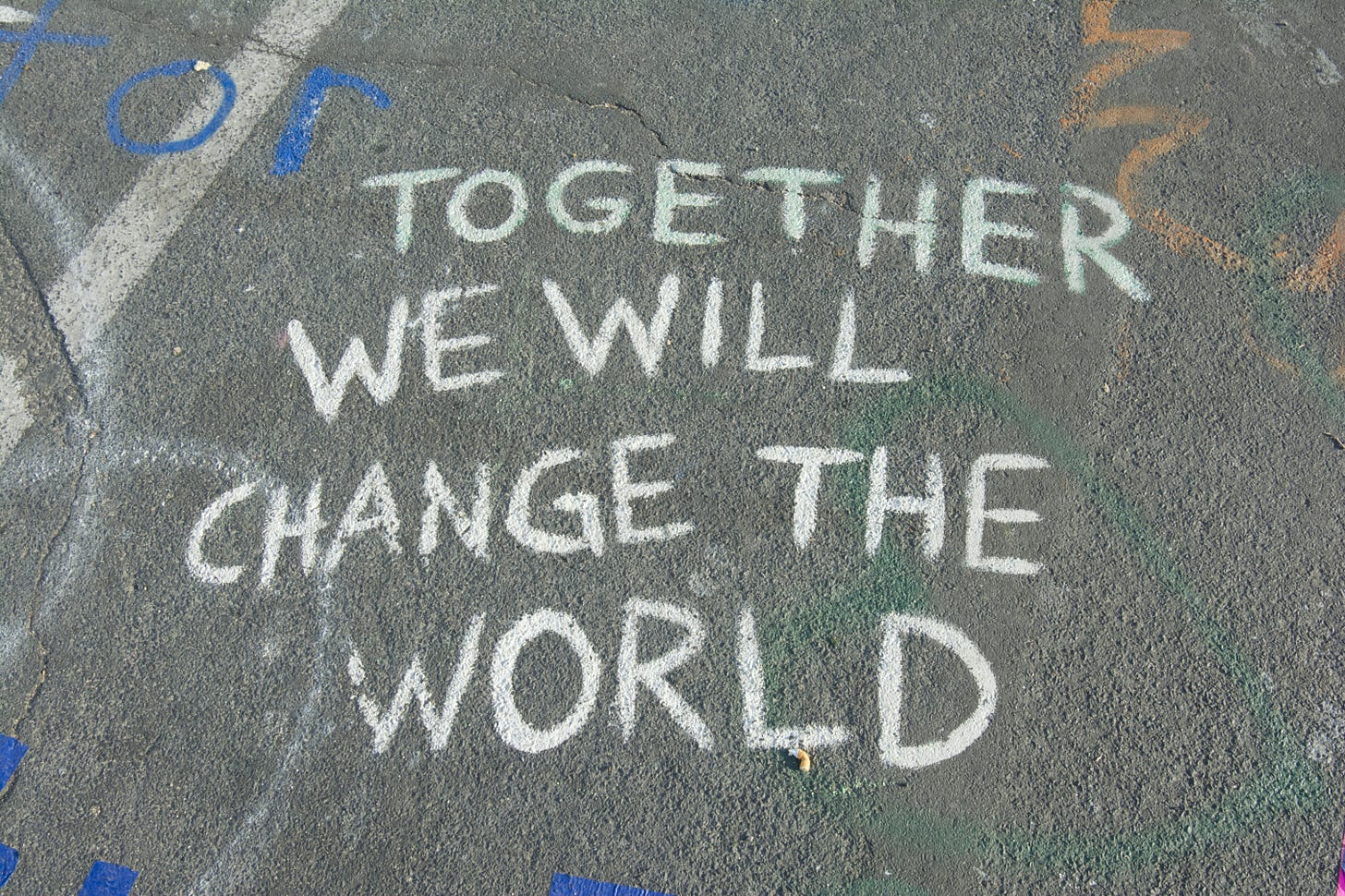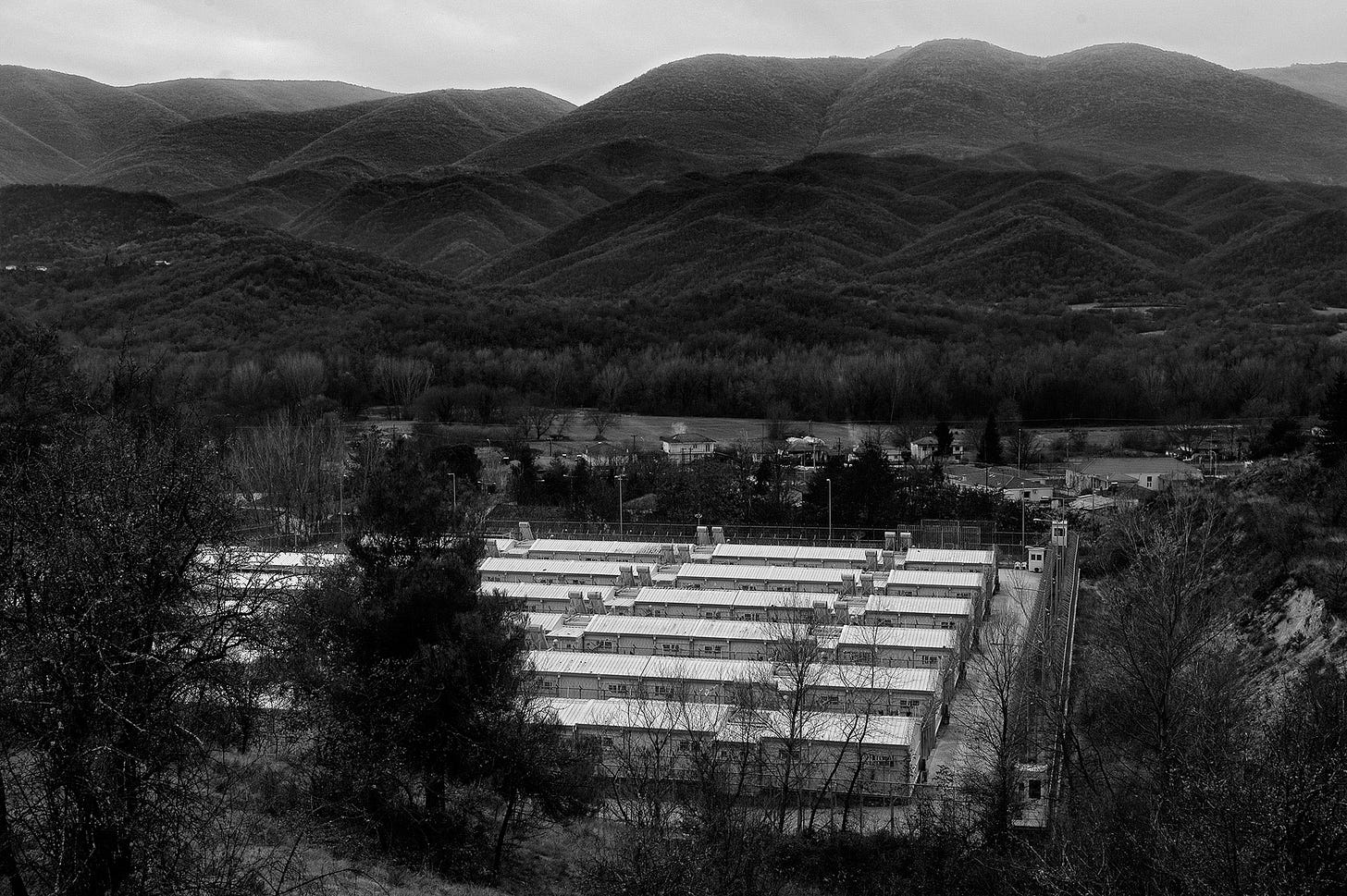ISRF Newsletter – May 2024
It’s May Day—and also ISRF Newsletter day! Scroll down for a Director's Note, recent Flexi Grant awardees, the latest issue of the ISRF Bulletin, upcoming events, and Fellows news.
Contents
Director’s Note
Protest and Paradigm Shifts
Christopher Newfield
This was supposed to be the great decade for the green transition. But now things seem to be moving in reverse.
For example, Pilita Clark reports that “JPMorgan, State Street, Pimco and Invesco have all quit Climate Action 100+”, while the UN-sponsored Net Zero Insurance Alliance “suffered an exodus after threats from right-wing politicians in the US and anti-ESG [environmental, social, and governance] activists that the insurers could be in breach of antitrust laws.” Governments in the UK, the Netherlands and elsewhere have backpedalled on various climate commitments.
I think about this frequently, not least because the ISRF is running an internal seminar on “Green Finance and Its Alternatives.” Most of the members have done important research on the limits of green finance. They’ve also highlighted the alternative systems that would work better to decarbonize at the necessary speed, which is “five times faster” than we’re currently going…
10th ISRF Flexi Grants Competition
In October 2023, the ISRF launched its tenth Flexible Grants for Small Groups competition. Having received a number of strong proposals, a selection panel nominated 19 projects for award.
Book Launch: The End of Empires and a World Remade, by Professor Martin Thomas
Friday 24 May, 5pm-6:30pm (BST). Barnard's Inn Hall, Holborn London C1N 2HH. In-person only.
In The End of Empires and a World Remade, Professor Martin Thomas brings together perspectives from global history, comparative politics, and international relations to re-evaluate decolonization in all of its historical messiness. For this launch event, he will be joined by Tarak Barkawi and Natalya Benkhaled-Vince to discuss his important book.
Conference: Migration and Democracy in a Time of Climate Crisis
7-9 October, Warsaw, Poland.
Our three topics for this year’s ISRF Conference have become trapped in a vicious cycle. Climate crisis increases migration, which has triggered anti-democratic backlash, which reduces international cooperation on climate, which allows the climate crisis to intensify. Each of these relationships is real, and each is rooted in myth. The ISRF invites papers on any of these three topics, or any combination of them. How can we interrupt this cycle and even reverse it? How can we treat underlying causes rather than addressing symptoms?
To enquire about attendance contact lars.cornelissen@isrf.org.
Recent Bulletin Posts
Struggles for the Human
ISRF Fellow Lara Montesinos Coleman’s new book draws on the experiences of grassroots organisations in Colombia to expose neoliberalism’s damaging privatisation of human rights.
Seven Photographs that Expose the Stark Reality of Immigration Detention
Dr Greg Constantine has spent years photographing people in immigration detention. Here, he shares some of their stories.
How Honeybees Can Teach Us How to Live During the Climate Emergency
By exploring the impact of climate change on the remote mountaintop village she calls home, Larisa Jašarević’s research finds surprising and revelatory connections between beekeeping and Islamic teachings.
Newly published!
Bulletin 29: Climate Education
This ISRF Bulletin brings together a number of papers presented at the ISRF’s 2023 conference. Asking where higher education sits in the fight for a green transition, contributions explore new critical pedagogies, identify gaps in education and research funding, and argue that climate education, to be meaningful, must also always be climate activism.
From the editorial
The papers in this issue look at how climate change and higher education intersect: what role do higher education institutions have in making a green transition thinkable, achievable, desirable? How are the flaws of our higher education system preventing this work from taking place? And how can critical pedagogies help push back against climate scepticism, pessimism, or defeatism?
Public Lecture: Possible Maps: Ways of Knowing and Unknowing at the Edge of Empire (Newfoundland c. 1763-1829), by Professor Julia Laite
In this lecture, hosted by the Royal Historical Society, Professor Laite will talk about her recent ISRF-funded research on the colony of Newfoundland and its place in the British Empire. 6pm-7:30pm, Friday 3 May, central London. Attendance in person and online.
New Publication: The End of Empires and a World Remade: A Global History of Decolonization (2024, Princeton University Press)
Professor Martin Thomas (ISRF Mid-Career Fellow 2015-16, pictured above) delivers a capacious history of decolonization, from the decline of empires to the era of globalization.
New Publication: Revenant Ecologies: Defying the Violence of Extinction and Conservation (2024, University of Minnesota Press)
Professor Audra Mitchell (ISRF Early Career Fellow 2014-15) offers a critique of the Western discourse of global extinction and biodiversity.
7th Mid-Career Fellowship (MCF7)
Closed on 28th March 2024
Scholars more than ten years post-PhD were eligible to apply for support to complete a one-year piece of original research. Award announcements are expected in the summer.
2nd First Book Grant (FBG2)
Launching early summer 2024 (date to be confirmed)
Newly qualified post-docs (within three years of PhD award) are eligible to apply for support to convert their PhD thesis into a book.
11th Flexible Grants for Small Groups Competition (FG11)
Launching autumn 2024 (date to be confirmed)
Funding support for small groups (2-10 scholars) to complete a piece of research or undertake face-to-face joint group work.









